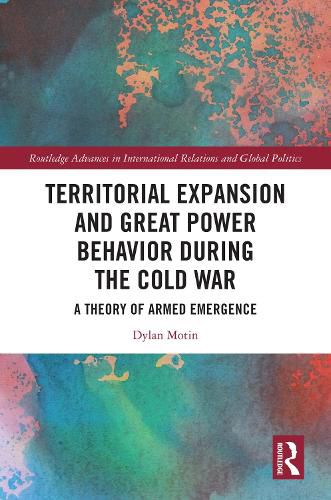Readings Newsletter
Become a Readings Member to make your shopping experience even easier.
Sign in or sign up for free!
You’re not far away from qualifying for FREE standard shipping within Australia
You’ve qualified for FREE standard shipping within Australia
The cart is loading…






Motin examines great powers' reactions to the rise of new powers in bipolar international systems by exploring an understudied problem: the rarity of armed emergence after 1945.
The book focuses on Egypt, Iraq, Syria, and Vietnam; the few minor powers that attempted to emerge as great powers through force during the Cold War. Geography and existing powers' reactions are analyzed as the two key factors determining a nation's attempts at territorial expansion to achieve power on the global political stage. This systematic investigation of previously overlooked cases has profound implications for the scholarship on the rise and fall of great powers.
In a context where territorial conquest is returning worldwide, scholars studying international relations, international security, and strategic studies should find valuable insights in this realist take.
$9.00 standard shipping within Australia
FREE standard shipping within Australia for orders over $100.00
Express & International shipping calculated at checkout
Motin examines great powers' reactions to the rise of new powers in bipolar international systems by exploring an understudied problem: the rarity of armed emergence after 1945.
The book focuses on Egypt, Iraq, Syria, and Vietnam; the few minor powers that attempted to emerge as great powers through force during the Cold War. Geography and existing powers' reactions are analyzed as the two key factors determining a nation's attempts at territorial expansion to achieve power on the global political stage. This systematic investigation of previously overlooked cases has profound implications for the scholarship on the rise and fall of great powers.
In a context where territorial conquest is returning worldwide, scholars studying international relations, international security, and strategic studies should find valuable insights in this realist take.